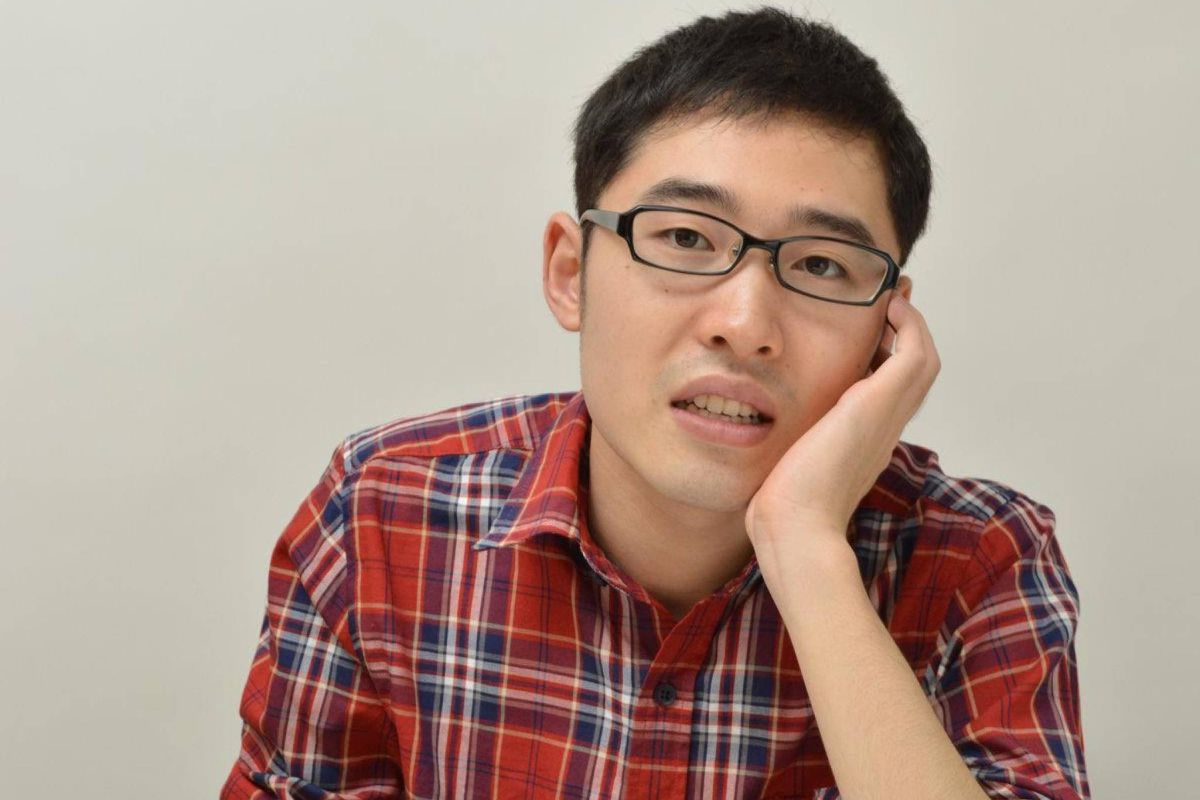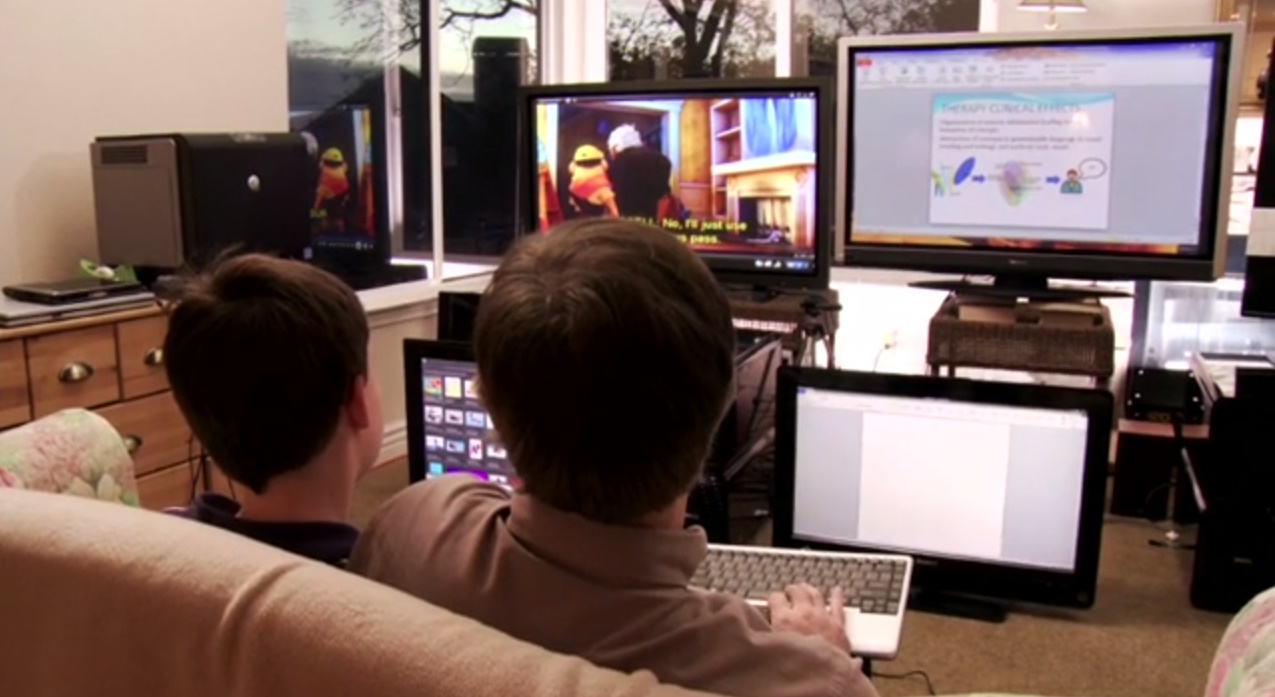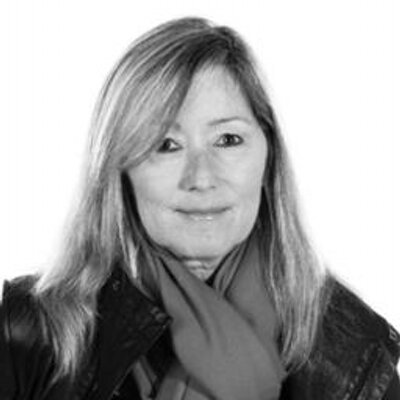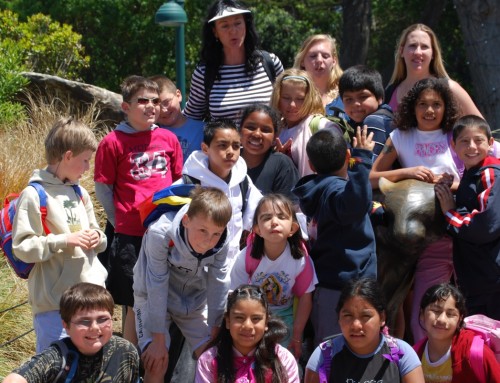The autism narrative: Gayle MacDonald
As with anyone with a special interest in autism, and particularly as a family with autistic twins, I have more than a passing interest in what’s out there about our community. Having said that however, what I find often makes my blood boil. If its not some research that puts more road blocks in front of parents like us, then its some idea that is so abstract its just flat out undoable. Or perhaps the worst of all, patronizing accounts of how tough we have it and that something should (miraculously) be done. And what really got me going most in the early years: its was when society at large told me that I’m not seeing the reality of my childrens’ the condition. If I had a dollar for every time I was called delusional, in denial, making things up, being a bad parent: well, I’d own an island beside Richard Branson’s in the Caribbean.
Even today, as non verbal Conor programs language technologies for children around the world, I still get questions like how could this be possible? Like, how can he use a computer anyway and teaching language….. really? Not that it really bothers me anymore, except when it puts road blocks up in front of the boys or others like them. When society puts the brakes on those trying to make their way in this world along with those termed ‘normal’. And our boys are now in their late teens and like their peers the world over are working through every insecurity, worry, hang up, lack of confidence, embarrassment that go with this stage of their lives. Living in a vast netherworld dominated by social media and populated by those who are neither child nor adult.
But enough of this!
I was sent a special article last night by a wonderful mother and person in Canada. It’s about fellow travelers who are pushing the envelop of societies perceptions of us and shining light on the kind of contributions that I believe will become a norm in the future. It’s also has special significance for us, as we continue to grow our European language research center in the National University of Ireland (Galway). And the fact that the article includes that Ireland, in at least one respect, is leading a quest to get our message out.
British novelist David Mitchell believes Naoki Higashida’s 2012 book, The Reason I Jump, written when he was 13, has “influenced the narrative of autism at least as much as any other book I know.”
He says that for two reasons. First, because it was written by a Japanese boy with severe, non-verbal autism. Second, because it was – and still is – something of a one-off in the autism literary world.
“Books are often written by autistic people looking back – people who are adults or who have a faculty for spoken language,” said Mitchell, whose novel Cloud Atlas was shortlisted for a Man Booker Prize and made into a Hollywood film starring Tom Hanks and Halle Berry. “For most intents and purposes, Naoki can’t speak,” added Mitchell, whose 11-year-old son is severe, non-verbal autistic. “And yet Naoki’s very eloquent on the page, which makes him very unusual.”
The Reason I Jump was an international success and has been translated into 34 languages. Now Higashida’s second book, Fall Down 7 Times Get Up 8, has hit shelves, and Mitchell – who wrote the introduction and did the English translation with his wife, KA Yoshida – hopes it will strike the same chord, giving voice to those on the spectrum who are rarely heard and helping parents such as him better understand why their children do and say the things they do.
“People with non-verbal autism do experience emotions. They do have imaginations. And they do have a theory of mind. This message is clear in the second book, which is a plea not to mistake communicative impairment for cognitive impairment,” Mitchell said. “To assume beyond the speechlessness of autism there lies nothing.”
 Fall Down 7 Times Get Up 8 is a compilation of short, powerful chapters interspersed with poems and a short story called Journey, which Higashida composed by “texticating” – a word Mitchell made up to explain how Higashida points to letters on a grid, then has a helper transcribe the resulting sentences. “A few texticaters have published, but you could count them on the fingers of a single hand,” Mitchell said on the phone from Chicago, where he’s taking a break from a new novel. (As a non-verbal autistic person, Higashida generally cannot give interviews.)
Fall Down 7 Times Get Up 8 is a compilation of short, powerful chapters interspersed with poems and a short story called Journey, which Higashida composed by “texticating” – a word Mitchell made up to explain how Higashida points to letters on a grid, then has a helper transcribe the resulting sentences. “A few texticaters have published, but you could count them on the fingers of a single hand,” Mitchell said on the phone from Chicago, where he’s taking a break from a new novel. (As a non-verbal autistic person, Higashida generally cannot give interviews.)
Toronto parent Julie Green has an eight-year-old autistic son named Jackson. She read The Reason I Jump five years ago and was especially intrigued by Higashida’s chapter on meltdowns – the shame, frustration and sadness the young boy felt for himself and his caregivers. “He compares it to being in a tsunami,” Green said. “Jackson is verbal, but he still can’t tell me why he has meltdowns and how he’s feeling.
“He always says he doesn’t know. He just doesn’t have a way to express it. Autism, generally, is an inabilitiy to communicate. Higashida’s words said to me: ‘Stay with your son. Don’t criticize him. Be patient.'”
Carly Harnadek, a mom of five – including two autistic sons, 12 and four – has been to countless doctors, therapists and specialists. They help, she says, but books by autistic authors – adults such as Temple Grandin, Daniel Tammet and Toronto’s Carly Fleischman, a 22-year-old with severe, non-verbal autism who co-authored Carly’s Voice with her father in 2012 – give her the most peace of mind.
“The books are a great comfort to know there is always hope. And not to just look at your child from the outside, because the inside can be completely different,” said Harnadek, whose family is featured in the documentary Beyond the Spectrum: A Family’s Year Confronting Autism, which airs Oct. 18 on TVO and in the spring of 2018 on CBC.
Mitchell, who lives in Ireland, says Higashida’s writing has influenced how he and his wife bring up their own son. “We talk to him in more adult language. I feel, looking back, I was unwittingly condescending. As for behaviours, we’ve just increased our expectations. If he’s left something on the ground, we say, ‘No, you can pick it up.’ And he can and he will. We no longer constantly make allowances for him, which probably wasn’t doing him much good.”
There are skeptics who question whether Higashida – given the severity of his autism – could have penned such layered, eloquent prose. Mitchell says he can – and did. “I have no reason to lie, and believe me, I’ve met my fair share of snake oil salesmen out there. I’ve even given money to a few. All parents are so desperate to find ways to help our kids.
“But I’ve met Naoki three or four times. I’ve seen him work. No one is holding his hands, and you can watch these ‘tweetable video-ettes’ on YouTube.”
As an insider who lives with autism all day, Mitchell says the last thing he wants to do sometimes is pick up a book on autism. “They can be really depressing,” he said, “but Naoki’s are hopeful because they show you never know what talents may lie behind the speechlessness.”
They also advocate for taking time to live outside the autism box. “I’ve realized the more you stay insulated, the more his talents are likely to stay hidden. So we recently took [my son] on a vacation to London. I was dreading the queuing, the waiting and standing still. But he handled it well.
“We get priority boarding when we fly with him, but there was still a queue. A couple of businessmen insisted we go ahead of them, and I almost teared up with gratitude. The world is a slightly more friendly autism place. We still have a long way to go, but the dagger stares have become fewer and scarcer. I guess, maybe, I care less as well.”








Leave A Comment